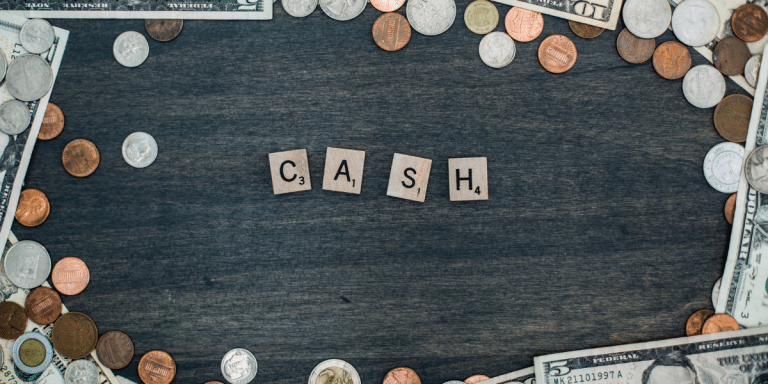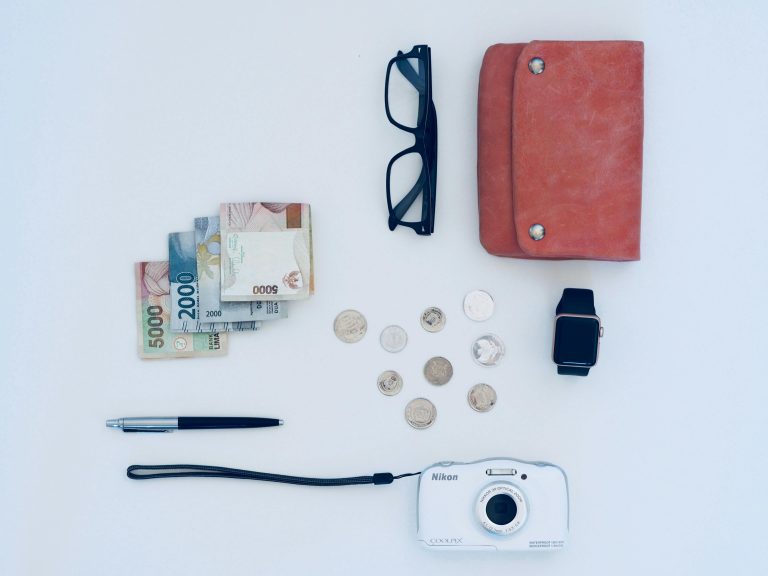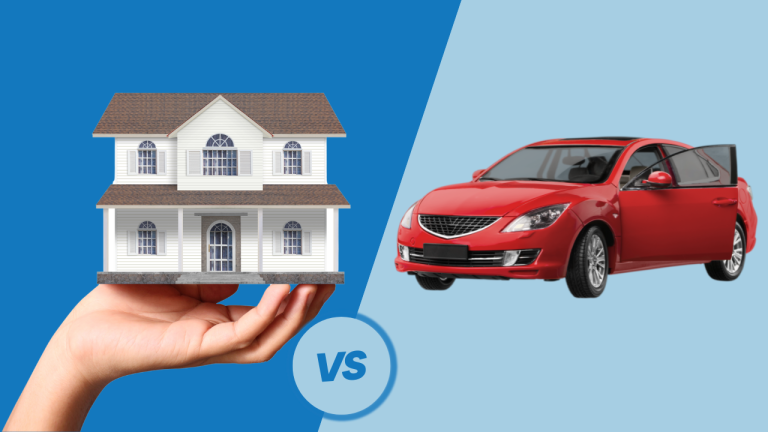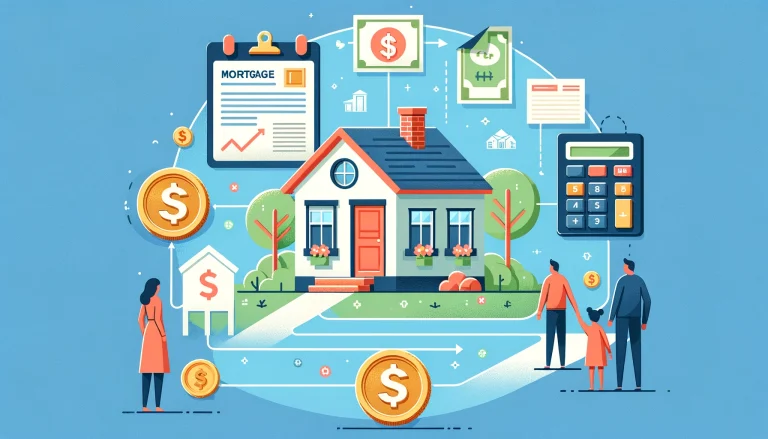You can buy pretty much anything on the internet nowadays, so it’s easy to lose track of your spending. Some people keep clicking or tapping “Add to Cart” and “Checkout” until one day, the credit card bills come. It turns out you just maxed out every one of your plastic swipers! It’s important to learn the difference between wanting vs. needing an item.
You might be surprised how often this happens to regular folks. Perhaps you even got into this situation, and now you need to straighten out your spending habits. Fortunately, this article can guide you through controlling your expenses.
First, let’s set clear definitions for wanting vs needing by going through various criteria. Then, we will go through the reasons why you should manage both types of expenses. More importantly, we will discuss how you can spend and save money wisely.
What’s the Difference between Needs vs. Wants?

When we like something, we sometimes exclaim how much we need it. For example, a common stereotype about millennials is that “they can’t live without avocado toast.”
Yet, you have to ask yourself whether or not you truly need that in your life. You can say the same for every expense you have every month. How can you tell apart wanting vs. needing?
Your “needs” are the things you need, so you can live and work. By the word “live”, this doesn’t mean the inspirational message found in countless books about “living your life to the fullest.”
Instead, your needs are the ones that keep you from getting sick or losing your life.
To illustrate this, let’s go through the basic needs and other necessities:
- Food – Everyone needs to eat every day to survive. Unless they follow a diet program or a doctor’s prescription, people must eat at least three meals a day.
- Shelter – You need a home to keep yourself warm during winter and cool during summer. This also involves recurring expenses like your utility bills. You need to pay those to keep the lights on and the water running in your tap.
- Clothing – People need to wear comfortable clothes to keep themselves protected from the elements. For example, you may wear a thin shirt during the summer and a thick coat during winter. You also need a pair of sturdy footwear to protect your feet.
- Transportation – Americans need cars to get to their offices, and they have to pay for car insurance. People in other countries simply take public transportation.
- Medicine – You need to pay for these from time to time as you’ll get sick eventually. If you have a preexisting condition, medicines are part of your monthly budget.
What sets apart your needs vs. wants? Those are the other things you need for leisure or entertainment. You can live without them as you can find so many alternatives.
You May Also Like: Why Should Creating an Emergency Fund Be a Top Priority?
Let’s use the needs from earlier and turn them into wants:
- Food – In 2020, the speaker of the House of Representatives Nancy Pelosi showed her freezer full of ice cream pints worth $12 each. That’s an example of a “want” because you don’t need ice cream to survive. Also, you’re likely to get sick if you eat that much daily.
- Shelter – You may have seen celebrities on the internet showing off their luxurious homes. You don’t need that much real estate even if you have a family. Most people live in modest houses that adequately meet their needs.
- Clothing – Perhaps you’ve seen people online brag about their latest purchases from Supreme or luxury brands. You don’t need designer clothing for your daily routine.
- Transportation – Nowadays, it’s much easier to get a car as you can now lease them. However, it would be best not to borrow money for a supercar as it’s impractical for everyday use. This can also cause major problems for personal finance in the long run.
- Medicine – You can meet your daily need for vitamins and minerals by eating a balanced diet. Unless you have a medical condition, health supplements are just one of your “wants.”
There can be exceptions since people’s lives are different from each other. Let’s say you work as a business executive. You may need a pricey car when meeting with clients as you need to project your authority for business deals.
Q3: What are some tips for those who may be struggling with separating needs versus wants? #CreditChat pic.twitter.com/wrk80SH4gV
— Experian (@Experian) July 22, 2020
If you’re having trouble distinguishing your needs vs. wants, perhaps you should answer the following questions:
Does This Meet a Basic Need?
Are you having trouble figuring out if you’re wanting vs. needing? Check if that thing you want counts as food, shelter, or clothing, then it’s probably one of your needs. Otherwise, ask yourself if you need it to sustain your health or livelihood.
You can consider a basic phone plan as a need because you’ll need it to contact loved ones and business associates. An internet connection is also a need nowadays because you need it for common expenses and other purposes.
Read More: How To Invest in Fintech?
Will You Survive without This?
Are you still struggling to check if you’re wanting vs. needing? Ask yourself if you’ll get sick or die without it. Make sure you’re not just fond of that thing you consider a need.
For example, you can live without a deluxe cable package, so it’s a need. Besides, you can find cheaper alternatives such as a Netflix subscription.
This is one of those things that don’t count as one of your basic living expenses. Unless your current vehicle is broken, buying a new car is likely just a “want.”
You May Also Like: How Much Should You Save in a Month?
Will This Thing Improve my Long Term Health or Happiness?
Most people buy things they don't need with money they don't have to impress people they don't like. Let's quit that.
— Dave Ramsey (@DaveRamsey) August 3, 2018
It can be fun to buy unnecessary items, especially if you’re meeting the latest trends. Many women do this, but men do it too. Some of them purchase a new vehicle for bragging rights.
Famous financial adviser Dave Ramsey said it best when he said, “We buy things we don’t need with money we don’t have to impress people we don’t like.”
You should ask yourself why you’re buying stuff in the first place. The extra mortgage payment may not be worth it if you just accepted it for the status symbol.
Before you buy something, ask yourself if it will still be useful after two years or so. If you just bought the latest handbag, it will become outdated once the new season comes. This will help you figure out if you’re wanting vs needing.
Read More: What to Do When Savings Run Out
Why Should I Balance My Wants and Needs?
"Now is really the time to identify needs vs. wants. I'm amazed by what I find I really don't need but would have sworn I did a few weeks ago." – @Rod_Griffin Join our #CreditChat every Wednesday for more thoughts and tips on #PersonalFinance and #COVID-19 #StaySafe pic.twitter.com/SODbV7bwf4
— Experian (@Experian) April 6, 2020
Most people assume that a frugal life means not buying stuff you like. Yet, proper money management requires a balance of your needs and wants because:
Spending money on wants is normal.
Having money makes no sense if you don’t use it to live your life. It’s not a good idea to waste it, but you’re not supposed to just keep saving.
This is a common misconception about living a frugal life. Some folks trim spending until they only pay for their basic need. Eventually, they get sick of their budget and go binge shopping.
Money is a means to an end. It’s a tool that should allow you to live your life to the fullest. That means maintaining personal finance while buying stuff you like from time to time.
It will help you save money.
We’ve established that “wants” are a necessary part of life, so your budget should account for that. If you can keep those expenses in check, you can save more money.
That’s important nowadays considering the long-term effects of the COVID-19 pandemic. It’s a public health issue, but we will feel its impact in other aspects, especially in our wallets!
This can help with credit repair.
Many financial advisors like Dave Ramsey shun credit cards as they see them as a way for people to bury themselves in debt. Others say it’s important for emergencies.
Whichever your stance, many Americans have huge debt burdens that have significantly decreased their credit scores. These are three-digit ratings that help lenders see how much money they could provide for borrowers.
If you’re one of these folks, then improving your credit score is probably one of your major financial goals. This means following a personal budget that balances wants and needs.
How can I balance my needs and wants?

You can do that by controlling your urge to splurge. In other words, you should rein in your spending impulses. The following methods could help you:
- Leave your credit cards at home when you go out to buy things, especially if you’re not going to purchase something expensive.
- You might want to bring a set amount of money each time you go out. If you’re buying groceries, just bring enough to buy your monthly needs. Alternatively, you could put your grocery money in a separate envelope, so you immediately know that it’s for groceries only.
- If you like to shop online, it’s best not to link your credit card to your shopping apps. This means you will have to whip out your plastic swiper each time you buy something. The inconvenience could give you more time to think about individual or group purchases.
Read More: How To Get A Loan And Avoid Loan Scams in 2024
What’s more, you might want to try the 50/30/20 rule. It involves separating your expenses into three broad categories:
- Needs (50%) – Half of your monthly take-home income must go to basic needs like food.
- Debts and savings (20%) – Use 20% of your monthly income to pay off your debts, such as personal loans. If there are funds remaining, use them for savings.
- Discretionary spending or your “wants” (30%) – You should allocate such a large chunk for things you like because it makes it easier to stick to the budget. If you have a lot of debt, you might have to use this on the monthly payments.
Final thoughts
If you find it difficult to start accounting for your financial needs, you might want to use computer programs. QuickBooks and FreshBooks can help you crunch the numbers in minutes.
You may want to speak to a financial advisor if you have serious personal finance problems. That way, they can teach setting apart wanting vs. needing and controlling your current spending habits.
For more finance tips, check out other articles from Financial Daily Updates. They provide budgeting strategies, debt reduction techniques, and more!
Published on April 14, 2022; Updated on February 16, 2024.












